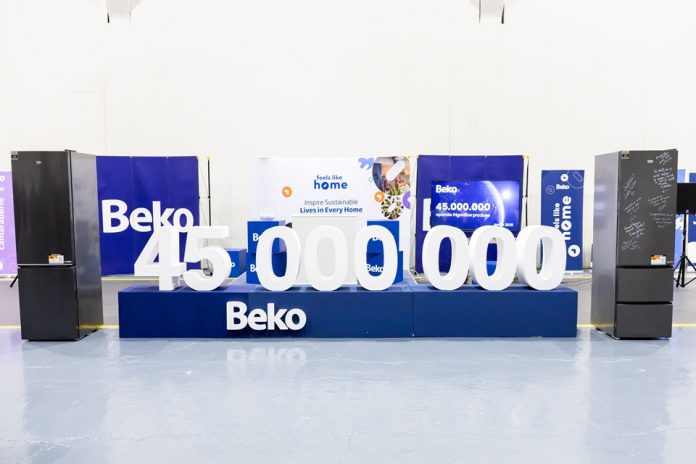Beko Romania, the leader of the local home appliance market and the largest production hub of the Beko Europe group, exceeded in April 2025 the threshold of 45 million refrigerators produced at the Gaesti factory.
“Beko Romania is today a leader on the local market, being a company that carries forward a legacy consolidated over half a century. Reaching the threshold of 45 million refrigerators produced in the Găești factory represents a significant moment and is the result of a continuous process of improving production and respecting the highest standards of sustainability and energy efficiency. We export over 84 percent of this factory’s production to over 66 countries, we contribute to the local economy through taxes and duties, we support communities, and all of this is a source of pride for our entire team,” said Marius Mihăilescu, Country Director Beko Romania, Moldova, Greece, Malta and Cyprus.
The factory’s over 2,000 employees, assisted by 6 collaborative robots and 15 autonomous industrial robots, produce 57 refrigerator models and over 600 derivative products at Găești. 84 percent of the factory’s total production goes to 66 international markets, meeting the ever-growing expectations of consumers in countries such as Germany, France, Italy, and Qatar.
Beko has equipped the Găești factory with a 2 MWp photovoltaic system and is set to transition to 100 percent certified green energy in July 2025. In terms of reducing the impact of production on the environment, water consumption per product manufactured was reduced by 8 percent compared to 2021, energy consumption was reduced by 3 percent per product, compared to 2021, and 100 percent of the waste generated is recycled or managed in a controlled manner.
By aligning with the Beko group’s global sustainability strategy, the Găești factory aims to reduce water and energy consumption per manufactured product by 45 percent by 2030 compared to 2015 and 2021, respectively, and to progressively eliminate emissions over the next 25 years, until reaching neutrality across the entire value chain in 2050.




